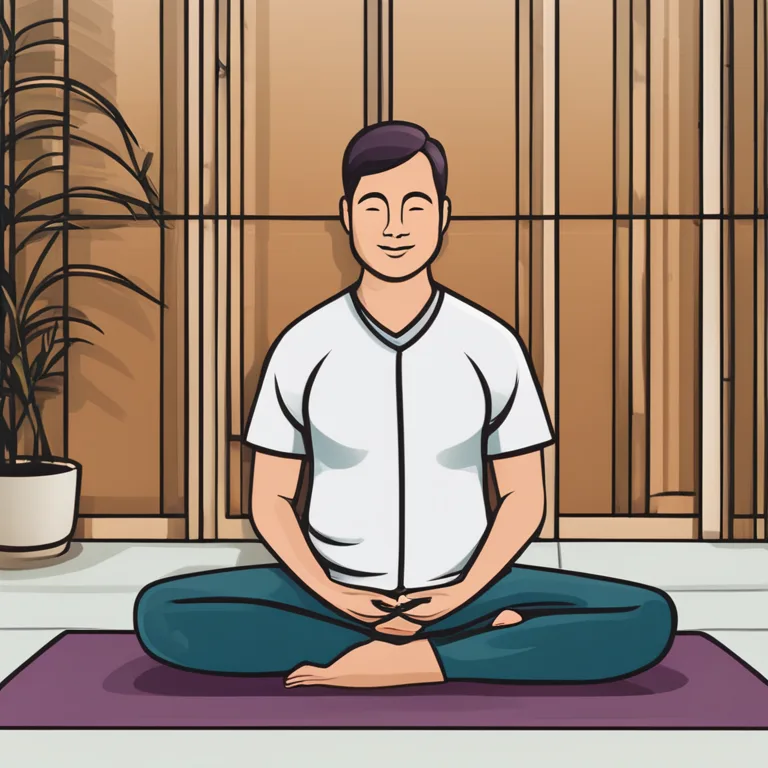
Meditation Techniques To Ease OCD
Discover effective meditation strategies designed to help alleviate the symptoms of Obsessive-Compulsive Disorder.
article by Hina Kurosawa
Introduction to Meditation and OCD
Meditation has increasingly become a tool in the management of various psychological conditions, including Obsessive-Compulsive Disorder (OCD). Recognizing its potential, many individuals with OCD are turning towards meditation to find solace and regain control over their intrusive thoughts and compulsive behaviors. By practicing mindfulness and other meditation strategies, people with OCD can learn to observe their thoughts without judgment and lessen their impact.

Mindfulness-Based Stress Reduction (MBSR)
Mindfulness-Based Stress Reduction (MBSR) is a structured program that helps individuals focus on the present moment. For those with OCD, MBSR offers techniques to recognize obsessive thoughts without acting on them. This program typically involves weekly group sessions and daily homework assignments, including practices such as body scanning, sitting meditation, and simple yoga poses. Embracing MBSR may contribute significantly to OCD symptom reduction in 2024 and beyond.

Mindfulness Meditation
Mindfulness meditation is the practice of being intensely aware of what you’re sensing and feeling at every moment, without interpretation or judgment. For OCD sufferers, this involves acknowledging obsessive thoughts and accepting them as just thoughts, not reality. This acceptance helps to break the cycle of compulsions by understanding that thoughts do not require any action. Establishing a daily routine of mindfulness can progressively alleviate the grip of OCD.

Transcendental Meditation (TM)
Transcendental Meditation, a form of silent mantra meditation, serves as a helpful technique for reducing stress and anxiety that often accompany OCD. Systematically repeating a personal mantra helps to promote a state of relaxed awareness, diverting attention from obsessive thoughts. Clinical research suggests that TM can lead to decreased anxiety levels and improved overall mental health for individuals practicing this technique regularly.

Yoga and Meditation Fusion
Yoga, while often considered a physical practice, is also a form of meditation that integrates body and mind. Its meditative aspects can be significantly beneficial for those with OCD, offering a dual approach that addresses the physiological and psychological components of the disorder. Asanas coupled with pranayama and dhyana (meditation) help in achieving a peaceful state of mind, which can dampen the urge to perform compulsive rituals.
ERP Complemented by Meditation
Exposure and Response Prevention (ERP) therapy remains the leading psychological treatment for OCD. When complemented with meditation techniques, ERP can be more effective. Patients exposed to their triggers in a controlled environment learn through meditation to tolerate the resulting anxiety without performing compulsions. Over time, integrating meditation can diminish the anxiety associated with these triggers and ease OCD symptoms.
Benefits of Consistent Practice
Incorporating meditation into daily life requires commitment, but the benefits for OCD patients can be profound. A consistent meditation practice offers a non-pharmacological way to manage anxiety and reduce the severity of OCD symptoms. As meditation does not incur any cost and has no side effects, it is increasingly being adopted as a complementary approach to traditional treatments, proving its significance in long-term OCD coping strategies.
Published: 12/20/2023
Modified: 12/20/2023
More predictions
Come back here soon to learn more about yourself and your future


Learning About Meditation Techniques
Discover effective meditation methods to enhance your well-being and spiritual journey.


Korean Meditation Practices for Serenity
Discover the transformative power of traditional Korean meditation techniques and enhance your mental tranquility.


Boost Concentration with Meditation Techniques
Discover effective meditation strategies to enhance focus and concentration in daily life.